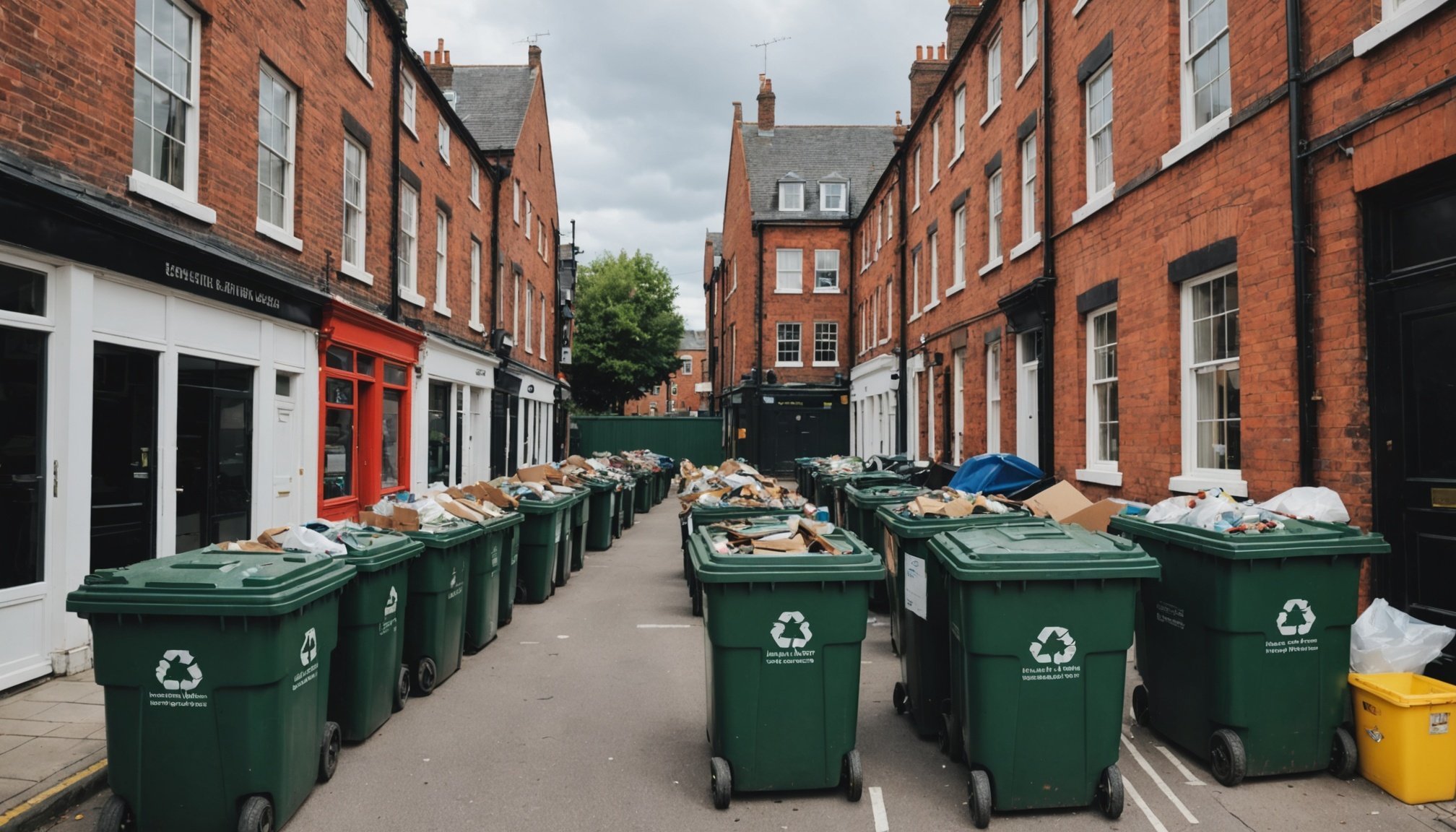Overview of UK Waste Management Compliance
In the realm of UK waste management laws, understanding key waste regulations is essential for any business, including recycling startups. The UK has established stringent regulations to ensure proper waste disposal and environmental protection. Notable legislation includes the Waste Management Licensing Regulations and the Environmental Protection Act, which dictate handling, treatment, and disposal standards for various waste types.
For recycling startups compliance, adhering to these laws is crucial. Not only does it ensure legal operation, but it also builds trust with clients and partners who expect responsible waste handling. Compliance also demonstrates a commitment to sustainability, increasingly important in today’s eco-conscious market.
Have you seen this : Establishing a successful organic food marketplace in the uk: your essential guide to navigating local health regulations
Failure to comply with waste management regulations can lead to significant penalties. Consequences of non-compliance range from hefty fines to business closure, reputational damage, or even legal prosecution. Compliance ensures businesses continue contributing positively to environmental conservation without risking their operational stability. To navigate these requirements effectively, recycling startups must prioritize understanding and integrating compliance measures into their daily operations.
Step-by-Step Compliance Procedures
Navigating the compliance procedures for a recycling business can be challenging but manageable with careful planning. Here’s a detailed checklist to get you started:
-
Registering as a Waste Carrier: This is your first step in ensuring compliance. Contact the Environment Agency to obtain a waste carrier’s licence. This licence confirms your legal obligation to transport waste responsibly.
-
Documentation and Reporting: Accurate records are crucial. Maintain detailed logs of waste types handled, treatment processes, and disposal methods. Compliance with waste management process standards requires that records are readily accessible for audits.
-
Site Compliance: Ensure your facilities meet safety and environmental standards through proper waste storage and handling protocols. Regular site inspections are encouraged to prevent violations.
Utilising these steps helps to cement good practices right from the start. By integrating these recycling business steps, startups can effectively meet regulatory demands and foster a system of accountability throughout their operations. Adhering to these guidelines not only ensures legal alignment but significantly aids in building client trust and sustainability credentials.
Tools and Templates for Compliance Implementation
In the dynamic world of waste management, using effective compliance tools is vital for ensuring regulatory adherence. Various downloadable templates and operational checklists can streamline the compliance processes for recycling startups.
Compliance tools often include templates for documenting waste types, handling methods, and audit trails. These resources are invaluable in maintaining accurate records, crucial for regulatory requirements. For example, operational checklists assist in ensuring that all safety and compliance procedures are followed systematically.
Checklists and templates are not merely for record-keeping; they assist in creating detailed action plans for waste treatment and disposal. This simplifies adherence to regulations by providing clear, structured processes.
The importance of using compliance tools cannot be overstated, as they provide a reliable framework and simplify complex regulatory requirements. They not only help in aligning a recycling business with legal standards but also bolster operational efficiency by enabling a structured approach to waste management.
Accessible, user-friendly platforms offer these templates and checklists, providing recycling startups with the necessary resources to meet compliance needs. These tools are paramount in navigating the complex landscape of waste management regulations effectively.
Best Practices for Navigating Compliance
Adhering to compliance best practices is essential for recycling startups aiming to maintain operational efficiency. Effectively navigating waste regulations involves implementing robust compliance approaches tailored to meet legal standards. Embedding these practices into daily activities can aid in safeguarding your legal standing and fostering long-term sustainability.
-
Stay Informed: Regularly update team members on changes in waste management laws to maintain relevance in your compliance strategies.
-
Develop a Compliance Culture: Encourage a compliance-first attitude across all levels of your startup. This cultural shift emphasizes the importance of meeting waste management process standards, promoting accountability.
-
Adapt to Change: Flexibility is key. As waste regulations evolve, your recycling methodologies should adapt accordingly to ensure unbroken compliance. Proactively adjusting procedures ensures uninterrupted service and reduces risk of non-compliance penalties.
-
Continuous Improvement: Invest time in reviewing and improving compliance processes. Implement feedback mechanisms that allow team members to suggest enhancements to existing operational efficiency practices.
By incorporating these recycling methodologies, startups can effectively navigate the regulatory landscape, ensuring both compliance and a strong, sustainable business foundation.
Relevant Resources for Recycling Startups
Easy access to waste management resources is critical for recycling businesses aiming to stay compliant and efficient. Reliable resources come from various sectors, offering guidance and information critical for startups.
Government Websites
Access to government websites is a must. These platforms provide up-to-date information on waste management regulations and offer official guidelines. The Environment Agency, for example, offers details about obtaining necessary licenses and managing compliance obligations. Such websites serve as a first point of reference for any compliance-related queries.
Industry Associations and Support Groups
Industry associations like the Chartered Institution of Wastes Management (CIWM) offer invaluable recycling guides and hold workshops to support startups. They provide a community for networking and exchanging valuable insights. These associations often offer mentorship programmes that align businesses with compliance tools and best practices.
Online Courses and Training
Online training programmes offer courses on sustainable practices and efficient waste disposal methods. Websites like FutureLearn and OpenLearn provide courses tailored towards waste management and recycling. These platforms present hands-on learning opportunities for startup owners and their teams, encouraging skill development aligned with regulatory needs.
Case Studies of Successful Recycling Startups
Exploring recycling success stories provides valuable insights for startups aiming to navigate compliance successfully. One notable example is Terracycle, which demonstrates how effective compliance case studies can lead to scalable business growth. Terracycle utilizes innovative recycling methodologies to manage diverse waste streams efficiently.
Key lessons learned from these startup insights include the importance of integrating compliance into the business model from the outset. This ensures that regulations are not just an obligation but a core part of the operational strategy. For instance, Terracycle developed a robust waste management process that emphasises transparency and accountability, gaining trust and attracting eco-conscious partners.
Another startup, Closed Loop Partners, showcases a commitment to sustainability through its closed-loop recycling initiatives. This approach not only addresses immediate compliance needs but also promotes long-term operational efficiency and environmental responsibility.
From these examples, best practices emerge, such as prioritizing data management and engaging with industry associations for ongoing support. Adopting proven strategies tailored to specific industry challenges can position startups for enduring success while ensuring they stay aligned with compliance standards.











